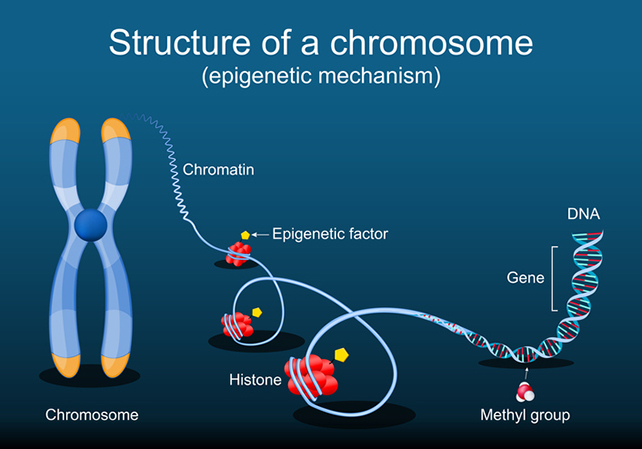Cannabis use may leave lasting fingerprints on the human body, a study of over 1,000 adults suggests – not in our DNA code itself, but in how that code is expressed.
US researchers found it may cause changes in the epigenome, which acts like a set of switches that activate or deactivate genes involved in how our bodies function.
"We observed associations between cumulative marijuana use and multiple epigenetic markers across time," explained epidemiologist Lifang Hou from Northwestern University when the research was published in 2023.
Cannabis is a commonly used substance in the US, with nearly half of Americans having tried it at least once, Hou and team report in their published paper.
Related: Cannabis Can Leave a Distinct Mark on Your DNA, Study Reveals
Some US states and other countries have made cannabis use legal, but we still don't fully understand its effects on our health.
To investigate this, the researchers analyzed data from a long-running health study that had tracked around 1,000 adults over two decades.
Participants, who were between 18 and 30 years old when the study began, were surveyed about their cannabis use over the years and gave blood samples at the 15- and 20-year marks.
Using these blood samples from five years apart, Hou and her team looked at the epigenetic changes, specifically DNA methylation levels, of people who had used cannabis recently or for a long time.
The addition or removal of methyl groups from DNA is one of the most studied epigenetic modifications.

Without changing the genomic sequence, DNA methylation affects how easily cells 'read' and interpret genes, much like someone covering up key lines in your set of instructions.
Environmental and lifestyle factors can trigger these methylation changes, which can be passed to future generations, and blood biomarkers can provide information about both recent and historical exposures.
"We previously identified associations between marijuana use and the aging process as captured through DNA methylation," Hou said.
"We wanted to further explore whether specific epigenetic factors were associated with marijuana and whether these factors are related to health outcomes."

The comprehensive data on the participants' cannabis use allowed the researchers to estimate cumulative use over time as well as recent use and compare it with DNA methylation markers in their blood for analysis.
They found numerous DNA methylation markers in the 15-year blood samples, 22 that were associated with recent use, and 31 associated with cumulative cannabis use.
In the samples taken at the 20-year point, they identified 132 markers linked to recent use and 16 linked to cumulative use.

"Interestingly, we consistently identified one marker that has previously been associated with tobacco use," Hou explained, "suggesting a potential shared epigenetic regulation between tobacco and marijuana use."
Multiple epigenetic changes associated with cannabis use had previously been linked to things like cellular proliferation, hormone signaling, infections, neurological disorders like schizophrenia and bipolar disorder, and substance use disorders.
It's important to note that this study doesn't prove that cannabis directly causes these changes or causes health problems.
"This research has provided novel insights into the association between marijuana use and epigenetic factors," said epidemiologist Drew Nannini from Northwestern University.
"Additional studies are needed to determine whether these associations are consistently observed in different populations. Moreover, studies examining the effect of marijuana on age-related health outcomes may provide further insight into the long-term effect of marijuana on health."
The study has been published in Molecular Psychiatry.
An earlier version of this article was published in July 2023.
